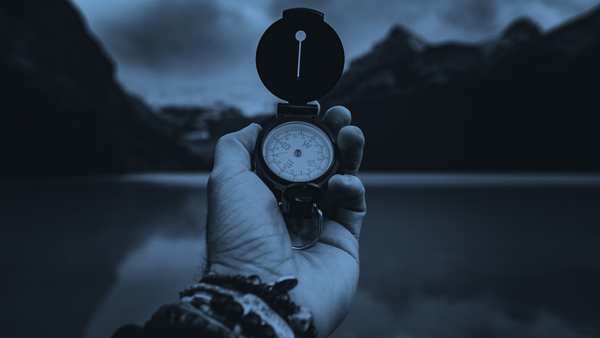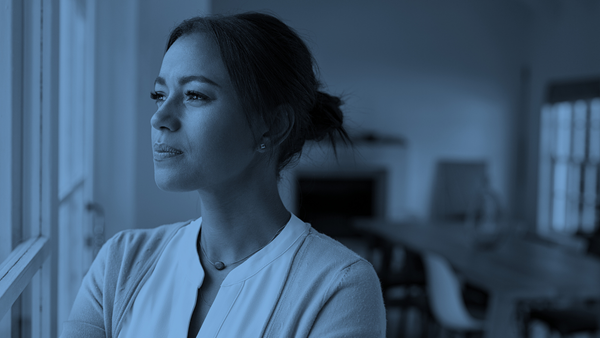Looking back, looking forward

WorkLifePsych News 016
Hello there,
As we hurtle towards the end of this year, it's time for the final newsletter for 2024. This time round, I want to reiterate one of the most important wellbeing messages I share with clients: the importance of sleep.
I'm also delighted to announce that we have a new member on the WorkLifePsych associate team, someone who brings significant experience and expertise. And we'll wrap up 2024 with some suggestions on how to reflect on the year gone by to help you prepare for the year ahead.

Are you prioritising your sleep?
Our 'Thriving at Work' theme continued in November and in Ep 714 of 'My Pocket Psych', I explored the importance of sleep when it comes to our wellbeing. I was inspired to bring this episode forward in the plan (yes, there's a plan!) due to my own experience of jet lag on my return from a lovely holiday in Japan.
In short, hey lag made everything more difficult. But you don't need to fly to the other side of the world to experience the downside of sleep disruption.
The core importance of sleep is a message I emphasise in virtually all of the wellbeing-focused work that I do with my clients. Whether it's coaching for wellbeing or facilitation of an entire wellbeing programme, sleep always makes an appearance. The bottom line is that so many of our investments in our wellbeing are undermined or eroded if we don't get sufficient good quality sleep. This includes the benefits from exercise, diet and social connection.
Sleep really is the foundation for all other aspects of our wellbeing.
Why sleep matters
Sleep matters because it contributes to our physical, psychological and social wellbeing. Just think about how you feel and act when you're sleep deprived. It's difficult to make decisions, to focus on tasks, to manage your emotions, and to interact with those around you.
Sleep contributes to our attempts to maintain a healthy weight, contributes to our cardiovascular health, and helps us perform at our best. It helps us process emotions, learn from experience and maintain a healthy immune system. Despite all of these very clear benefits, so many of our contemporary habits actively decrease the quality and duration of our sleep. Whether it's working from bed, 'revenge bedtime procrastination', too much caffeine or alcohol, or just irregular sleep routines, modern life seems stacked against quality sleep and its contribution to our health.
If you're already considering the changes you'd like to make in the coming year, especially with regard to your health and wellbeing, I'd strongly suggest taking a look at your sleep habits and what you can do to make sleep a priority.
Check out 'Sleep, wellbeing and...thriving?' to learn more about how these habits impact our sleep and for some suggestions on what you can do instead. And if you'd like to me to contribute to your wellbeing initiatives in 2025 with workshops on sleep and related wellbeing topics, get in touch!
Welcoming a new team member
I'm thrilled to be announcing that the WorkLifePsych associate team has once again expanded, and we've been joined by Dr. Wayne Mullen. Wayne brings enormous experience and expertise to the skill. His career has seen him specialise in leadership development and DEI, working in Chief People Officer roles in a variety of organisational contexts.
You can find out more about Wayne and his experience in the most recent episode of 'My Pocket Psych', where we discussed Wayne's doctoral research into leadership, the importance of identity and diversity in leadership, along with how to tackle some of the common wellbeing challenges senior leaders face. And yes, that includes threats to good quality sleep!
I'm excited at all the plans we have for 2025 in the leadership development space, and can't wait to work alongside Wayne again. He's one of the most inspiring practitioners I have had the pleasure of meeting in the last twenty years. You can get a flavour of his approach in our conversation below.
Reflecting on the year gone by
Given it's December, you might already be thinking about 2025 and the changes you'd like to make for the year ahead. It could be tempting to dive into some goal-setting or thinking about potential New Year's resolutions. And while I'm not completely opposed to goals, I would suggest you do one simple thing first. Reflect on the year that you've just had to see what you can learn from it.

So what could a review of the year look like?
When coaching clients, I am emphasise a few key points to support reflection. Firstly, block out a reasonable amount of time and don't expect that you can complete this in one sitting. Maybe combined with something pleasurable and relaxing, like a nice coffee in your favourite coffee shop or some quiet time in the local library.
Secondly, record your answers to these questions in writing - don't rely on your memory alone and don't fall into the trap of optimism that these insights will still be with you in even a couple of weeks, never mind a couple of months. So make sure you have a pen and paper to hand as you work through your review.
Thirdly, reflect on the questions below, according to your life's roles. Each of us occupies multiple roles and not just formally-defined roles like a job. The roles we occupy include things like family relationships, hobbies, community involvement, social pursuits and areas of focus like personal and professional development. You'll have experienced each role in different ways at different times, so it's worth thinking about your annual journey for each.
Finally, an overarching principle when it comes to reflection is to be honest. The outputs of this review should not be designed to impress anyone, even yourself. When we reflect, we're looking to take some learning from the reflection, not just have a list of things we are delighted about or want to share with the world. So looking at the questions below, you'll see there's an exploration of the positives, as well as the negatives, as both can give us valuable learning points
Key questions to answer:
1 - What went well and why? What are you most proud of from the year gone by? What successes did you experience? What experiences did you most enjoy? What goals or milestones did you achieve or celebrate? What learning points can you take from these positive experiences?
2 - What didn't go so well and how did you deal with it? What setbacks and challenges did you face and how happy are you with your approach to your coping with them? What learning points can you take from these difficulties?
3 - How have you invested in yourself? Maybe this took the form of intentional self-care, formal learning and development, or simply learning how to rest and recover.
4 - What have you learnt about yourself this past year? How did the last twelve months contribute to how you understand yourself? What did you learn about your strengths and development areas?
5 - Given all of this, if you could hop into a time machine and return to December 2023, what advice would you give your past self? (And no, you can't pass along any winning lottery numbers!).
6 - What changes do you want to make as a result of this reflection? Which could take for the form of new habits? Which are better expressed as goals?
Of course, this is all made easier if you have a record of the last twelve months, which adds weight to my suggestion that we all take some time each week to review the year as we go along.
And if you think any of the changes you'd like to make in 2025 could be better supported through the accountability of professional coaching, I'd be delighted to have a chat with you about how coaching can help.
Thank you
Finally, I'd like to thank you for accompanying me on this journey in 2024 and wish you success in all your plans and endeavours in 2025. I'm taking a couple of weeks away from the office over the Christmas break and look forward to returning in January full of enthusiasm and even more plans.
Whatever holidays you're celebrating this month, I hope you can disconnect from work and get all the benefits of a no doubt well-deserved break.





